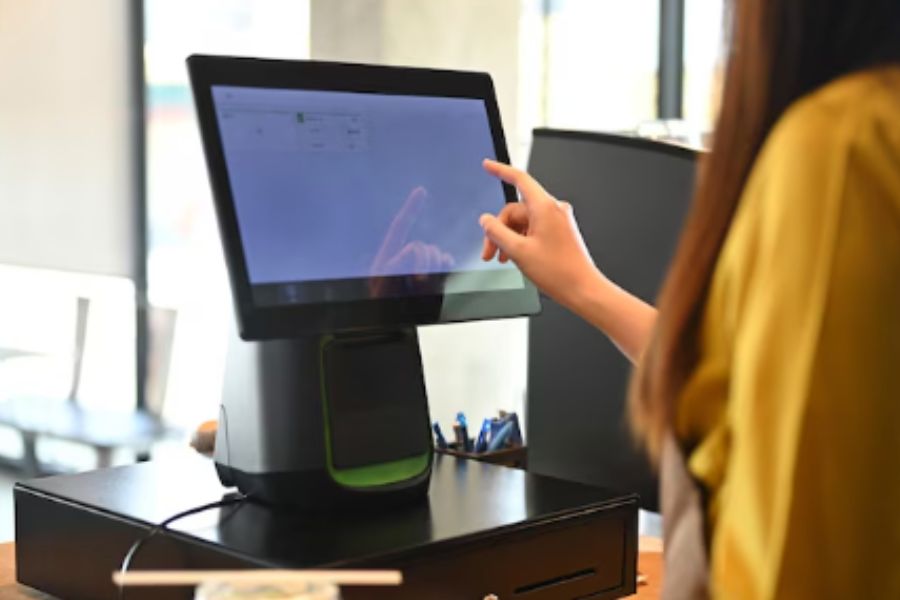Advantages of POS in Bookstores and Stationery Shops

In an age of increasing competition and customer expectations, bookstores and stationery shops can no longer rely on traditional cash registers and manual tracking systems. To stay efficient, profitable, and customer-friendly, retailers in this niche are turning to modern Point of Sale (POS) systems. These solutions are not just about processing sales—they’re full-featured tools that streamline operations, boost sales, and improve the customer experience.
Let’s explore the major advantages of using a POS system in bookstores and stationery shops.
1. Simplified Inventory Management
Bookstores and stationery shops typically handle thousands of SKUs—from books, notebooks, pens, and art supplies to seasonal and educational items. A POS system simplifies inventory management by keeping accurate, real-time records of stock levels.
Instead of manually counting stock or using spreadsheets, you can track what’s selling and what needs to be reordered. POS systems allow barcode scanning for quick updates, automatic stock alerts, and purchase order generation. This prevents both overstocking and running out of popular items, helping you maintain an optimal inventory balance.
2. Faster and More Accurate Sales Processing
Speed and accuracy at checkout are crucial, especially during rush hours, back-to-school seasons, or special events. A POS system allows staff to process transactions quickly using barcode scanners, touch screens, or mobile devices. Pricing errors are minimized, and receipts can be printed or emailed instantly.
Additionally, POS systems integrate various payment methods—cash, card, digital wallets, or loyalty points—making the checkout experience seamless and customer-friendly.
3. Customer Relationship Management (CRM)
Understanding your customers’ preferences is key to building loyalty. Modern POS systems include CRM tools that capture valuable data such as buying behavior, purchase history, and personal information like birthdays or preferred genres.
This information can be used to run personalized promotions, targeted email campaigns, and loyalty programs. For example, a bookstore could send recommendations based on past purchases, while a stationery store might offer discounts on favorite brands. This builds long-term relationships and encourages repeat business.
4. Detailed Sales Reporting and Insights
POS systems generate detailed reports that help owners and managers make informed decisions. You can track top-selling items, slow movers, seasonal trends, daily sales performance, and employee productivity.
These insights help you plan marketing strategies, adjust pricing, and optimize stock levels. Over time, data-driven decisions lead to increased profitability and better business control.
5. Multi-location Management
If you own multiple bookstores or stationery outlets, managing them from a single platform becomes easy with a cloud-based POS system. You can oversee inventory across locations, transfer stock, view consolidated sales reports, and maintain pricing consistency—all from your office or mobile device.
This centralized control eliminates guesswork and allows you to scale operations with confidence.
6. Employee Management
POS systems also assist with staff management. You can track employee login times, sales performance, and transactions, giving you a clear picture of who’s contributing what. This can help with scheduling, performance reviews, and loss prevention.
Some systems even allow setting permissions, so staff only access the features relevant to their roles.
7. Reduced Errors and Theft
Manual systems are prone to human error and are more difficult to monitor. A POS system creates a digital paper trail of every transaction, return, and adjustment. This transparency reduces chances of internal theft and makes audits easier.
Discounts, refunds, and inventory changes require user authentication, ensuring accountability across the team.
8. Integration with E-commerce and Digital Tools
Many bookstores and stationery stores now sell online. A modern POS can integrate with your e-commerce platform, keeping your online and offline stock synced in real-time. This eliminates overselling and enhances customer trust.
Moreover, POS systems often connect with accounting, email marketing, and delivery tracking tools—streamlining your entire business workflow.
Final Thoughts
A well-implemented POS system is more than a tool—it’s the backbone of a successful bookstore or stationery shop. From managing inventory and tracking sales to understanding customers and enabling e-commerce, the advantages are numerous.
As consumer behavior evolves and competition grows, a smart POS system can help you stay ahead, improve customer satisfaction, and run your business more efficiently than ever before.






